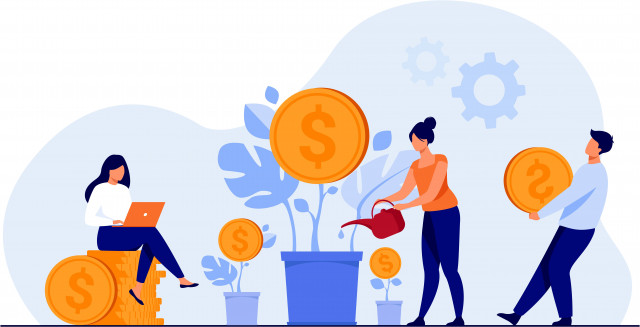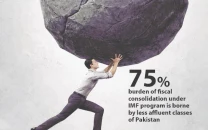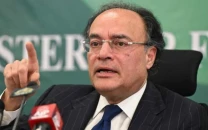Adding another $30b to GDP
Without empowering women, economic development will remain a dream

Pakistan has an enormous untapped resource to boost economic growth significantly. Its two key bases of foreign exchange earnings are exports and remittances. Each one contributes about $30 billion annually.
Another source that can contribute an equivalent amount, as per a study by the McKinsey Global Institute, has received little attention. The untapped source is women’s empowerment.
Pakistan currently ranks 145/156 in female economic participation and opportunity. Closing the gender gap can add another $30 billion to the gross domestic product (GDP).
We have outstanding women leaders in Pakistan, but there is a general perception that they need to have the capability to perform in administrative and leadership positions. When women are given any position of responsibility, they perform much better than their male counterparts, confirming that this presumption is entirely inaccurate.
For the sake of comparison, we can look at the current PDM cabinet, which has just a nominal representation of women. But these few women have made their mark and their contributions are acknowledged worldwide.
At the recent UN Climate Summit, Minister of Climate Change Sherry Rehman won plaudits for shepherding a new deal to channel money from rich countries to poor countries that have suffered climate-related disasters, according to the Economist.
Similarly, Minister of State for Foreign Affairs Hina Rabbani Khar gave an equally sterling performance while successfully pleading the case for Pakistan’s exit from the grey list at the FATF plenary meeting in Paris in October 2022.
In previous governments as well, women ministers outperformed their male counterparts. As the minister of poverty alleviation in the PTI government, Dr Sania Nishtar, did an excellent job, implementing social protection programmes, especially during Covid.
Similarly, PTI’s minister of human rights Shireen Mazari sponsored several legislations for women empowerment including protection for women in the workplace against violence and harassment.
In the last PML-N government, minister of state for information technology and telecommunication Anusha Rehman was another go-getter. The UN’s International Telecommunication Union gave her the Global Achiever award to acknowledge her contribution.
These examples illustrate Margaret Thatcher’s point, “If you want something said, ask a man; if you want something done, ask a woman.”
We should ask ourselves, why couldn’t we have more women lead us to get something done and get us out of our current disarray?
The World Economic Forum ranks us as the second-worst country in gender parity. We blame judges, generals, politicians and everyone else who have been in decision-making roles, but we do not realise that men always hold these critical positions.
If we look at all the top posts in Pakistan, there is not one occupied by women.
There is, however, a considerable improvement in representation of women in the national legislatures mainly thanks to the electoral reforms during the Musharraf regime. Through legislation, 33% of seats were reserved for women in the local government and 17% of seats for women in the national and provincial assemblies as well as in the Senate.
This is the key reason that Pakistan’s ranking of 98th in political empowerment indices out of 156 countries is much better than its ranking in any other area.
Previous to this legislation, the representation of women had never reached more than 3.5%.
Even with mandatory actions, the progress towards women’s empowerment has been slow.
For example, the Securities and Exchange Commission of Pakistan (SECP) requires all publicly listed companies to have female representation on their boards. Non-compliance can attract heavy penalties.
The rule has improved women’s standing slightly as the proportion of women in managerial positions has nearly doubled between 2015 (2.7%) and 2019 (4.53%), but this is not enough as it is from a rather low base.
Pakistan has adopted several key international commitments and has enacted a number of measures designed to improve gender equality and women’s human rights.
However, it is not likely to achieve the relevant UN Sustainable Development Goal (SDG) on gender equality as the implementation of these laws is rather lax. It needs far more serious commitment from the federal as well as provincial governments.
It has to be realised that empowering women is not only a desirable goal by itself; without it, economic development will remain a far-fetched dream. As Malala Yousafzai said, “We cannot all succeed when half of us are held back.”
The writer is currently serving as an international trade arbitrator. He has previously served as Pakistan’s Ambassador to WTO and FAO’s representative to the UN at Geneva
Published in The Express Tribune, December 12th, 2022.
Like Business on Facebook, follow @TribuneBiz on Twitter to stay informed and join in the conversation.


















COMMENTS
Comments are moderated and generally will be posted if they are on-topic and not abusive.
For more information, please see our Comments FAQ